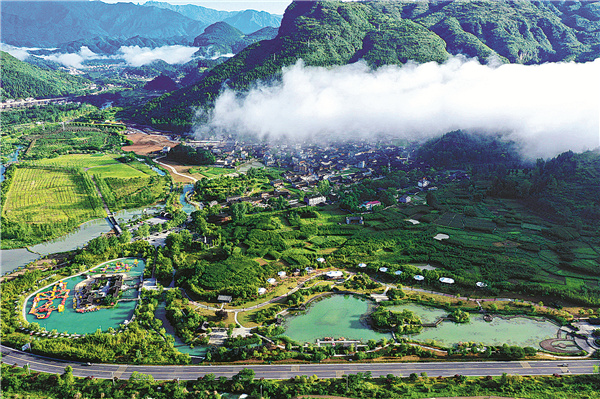

Tang had the idea of developing a homestay after he found local villagers only offer humble rural accommodations. He rented an empty house and renovated it. He settled on a simple design concept and decided to use local resources for his project. With the idea of retaining the original look of the house, Tang paved a stone road in front of the house, put up bamboo screens and hand-painted works featuring the village's scenery, and established a papermaking studio. It instilled in the homestay a strong artistic vibe. Visitors can enjoy tea, party music, films, leaf-sculpting and painting on pebbles, as well as try their hand at cooking Tujia cuisine in an open kitchen at his homestay.
"Most travelers will choose to stay a night here after touring the Fanjing Mountain," Tang says.
The village is a 20-minute drive from there. Tang says his homestay is popular with visitors from Beijing, Shanghai and Guangdong.
"They usually come once a year and stay a month to fit in with the quiet and comfortable ambience and blow off steam after their accumulated work pressure in the cities," Tang says.